A press conference held in Freetown, Sierra Leone, last Friday brought together members of the Marginalized Affected Property Owners Association (MAPO), their legal representatives, and senior officials of the Network Movement for Justice and Development (NMJD), to renew calls for justice for mining-affected communities in Kono District.
The event highlighted years of alleged abuse, injustice, and environmental destruction linked to the operations of Koidu Limited, a diamond mining company operating in eastern Sierra Leone.
Voices from the Affected Communities
MAPO Chairlady, Mrs. Sia Janet Bayoh, delivered an emotional account of her community’s ordeal and described how Koidu Limited forcefully seized their lands and flooded her home to compel her family to relocate.
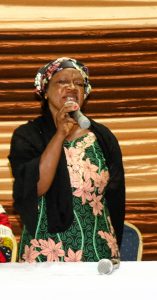
“We were moved to a new place without water, without schools, without a clinic,” she said. “They call it resettlement, but it was more like abandonment.”
Mrs. Bayoh also recounted how frequent blasting by the company, often done without notice, damaged their houses and endangered lives. “My own son’s head was seriously injured by a flying rock,” she said tearfully, accusing Koidu Limited of refusing to take responsibility for the incident.
MAPO Chairman, Mr. Tamba Prince Boima, spoke of the “monumental destruction” caused by mining activities to their farms, rivers, and livelihoods. He detailed a pattern of intimidation, bribery attempts, and undue pressure from company agents, government officials, and traditional authorities aimed at silencing their movement.
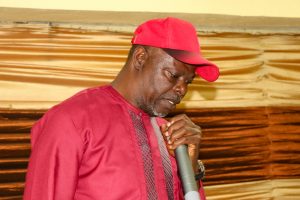
“They tried to buy our conscience,” Boima said. “But we refused. We are poor, but we are not for sale. We will continue this fight for justice — for our land, our children, and our dignity.”
Painful journey
NMJD’s Executive Director, Mr. Abu Brima, reflected on the long struggle for justice within Sierra Leone’s mining sector, describing it as “a painful journey of resistance, deceit, and systemic failure.”
He recalled NMJD’s early interventions, including research conducted with Partnership Africa Canada (now IMPACT), which established the link between the country’s decade-long civil war and the illicit diamond trade.
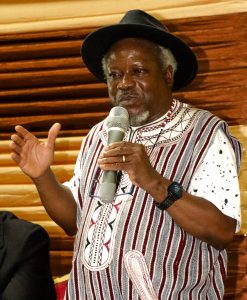
Mr. Brima emphasized that the findings of that research inspired the creation of the Kimberley Process Certification Scheme (KPCS), a global initiative aimed at preventing conflict diamonds from entering the mainstream market and ensuring that diamond revenues contribute to community development.
However, he lamented that “despite Sierra Leone’s participation, the objectives of the Kimberley Process have been betrayed by persistent injustice, exploitation, and government complicity.”
Failures of Accountability and Governance
Mr. Brima accused Koidu Limited of consistently violating national laws and community rights and stated that the company’s non-compliance with social and environmental obligations triggered MAPO’s ongoing court case.
He also criticized the World Bank for what he described as “biased interventions” through its Multilateral Investment Guarantee Agency (MIGA), arguing that their involvement was designed to protect corporate interests rather than national welfare.
The NMJD Director further condemned the role of certain local chiefs, alleging that they had become “beneficiaries” of the company’s operations and had turned a blind eye to the suffering of their people.
He also recounted two fatal incidents in Kono involving state security forces and protesting residents.
In December 2007, two demonstrators were shot dead during a peaceful protest against Koidu Holdings. The subsequent Jenkins Johnston Commission of Enquiry found the company guilty and issued 17 recommendations — none of which were ever implemented. Five years later, in a similar protest, two more lives were lost, yet justice was again denied.
“Every year, government officials attend Kimberley Process meetings abroad and present deceitful reports of compliance,” Mr. Brima said. “But if there were real compliance, these injustices wouldn’t persist.”
Judicial Delays and Obstacles
The speakers also described the slow pace of justice, citing repeated changes in court venues, long adjournments, and missing case files — challenges that have prolonged their legal struggle for years. These obstacles, they said, have drained the affected families emotionally and financially, but their resolve remains firm.
Landmark judgment
Dr. Chernor M. Benedict Jalloh of C&J Partners and Lead Counsel for the plaintiffs all residents of Kono District told the media that Court of Appeal of Sierra Leone has delivered a landmark judgment in the case of Aiah Fengai & 73 Others v. Octea Limited & Others, overturning a 2022 High Court decision that had dismissed the plaintiffs’ claims for lack of jurisdiction.
He said the ruling, announced by a three-member panel led by Justice Fynn, found that the High Court erred in law when it denied the plaintiffs legal standing to sue, and further granted an interlocutory injunction freezing the defendant companies’ assets pending trial.
The case, according to Dr. Jalloh, was filed by 74 class plaintiffs, 14 additional class plaintiffs, and nine individual plaintiffs — all residents of Kono District — who allege that Octea Limited’s mining operations caused extensive environmental destruction, unlawful deprivation of property, economic displacement, and emotional distress.
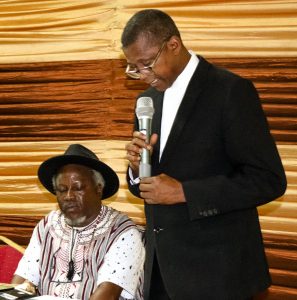
He explained that their multiple suits were consolidated into one action at the High Court but struck out in October 2022 on the grounds that the plaintiffs lacked the capacity to sue and were not parties to any relevant contracts.
Dr. Jalloh further said the trial judge failed to acknowledge their property and personal rights protected under law, even on customary lands owned by traditional chiefs.
“The plaintiffs therefore challenged the court’s insistence that they exhaust a non-functional corporate grievance mechanism before seeking judicial redress. The Court of Appeal agreed, holding that damages for personal injury, property loss, emotional harm, and environmental nuisance were valid claims”, the Lead Counsel added.
“In a decision hailed as groundbreaking, the Court affirmed that residents of customary lands have the right to sue for violations affecting those lands, even when legal title rests with local chiefs. Drawing inspiration from Ghanaian jurisprudence, the Court stated that restricting such rights to chiefs alone “would be absurd,” adding that traditional authorities are not immune from accountability.”
According to him, the ruling allows the case to proceed to trial at the High Court and sets an important precedent in Sierra Leone’s legal history. It broadens access to justice for communities impacted by extractive industries and establishes, for the first time, that citizens can bring human rights–related lawsuits against multinational corporations for abuses tied to mining and environmental harm.
A Call to Action
The press conference concluded with a renewed appeal to the Government of Sierra Leone, the international community, and civil society actors to take decisive action to ensure accountability in the mining sector and protect the rights of affected communities.
“Justice delayed is justice denied,” Brima stated. “The people of Kono have waited too long. It is time for the government to act, not to protect corporations, but to defend its citizens.”
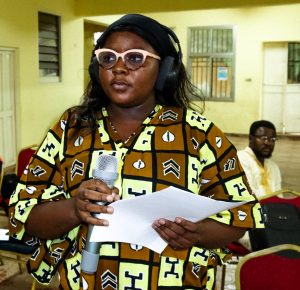
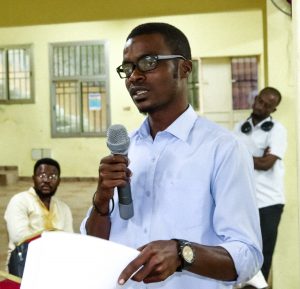
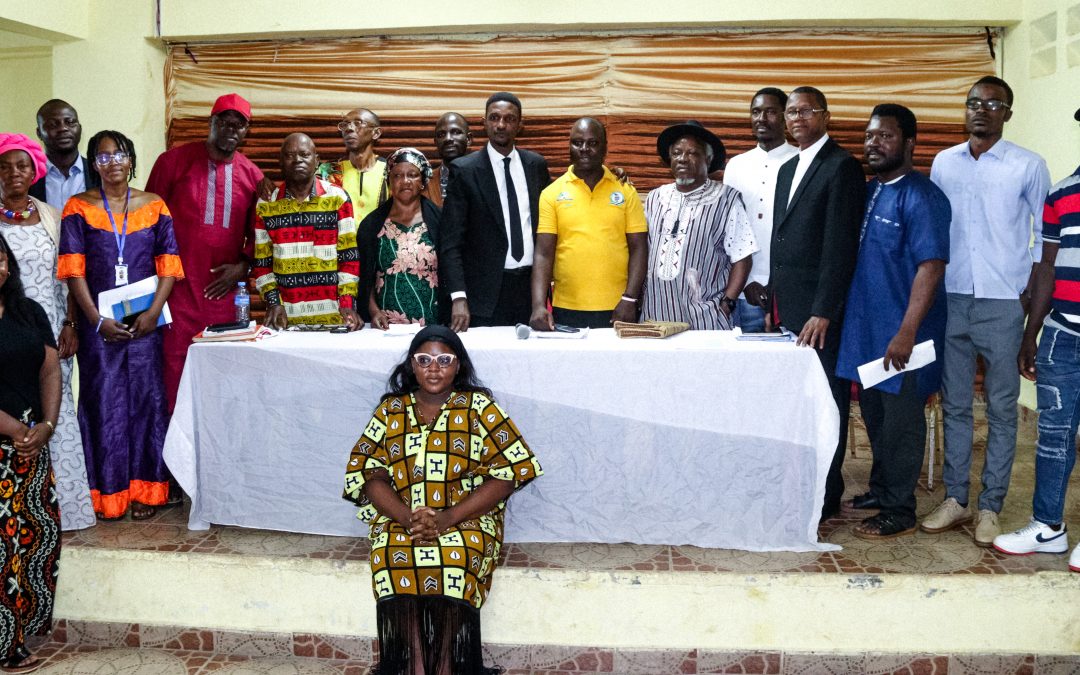
Recent Comments